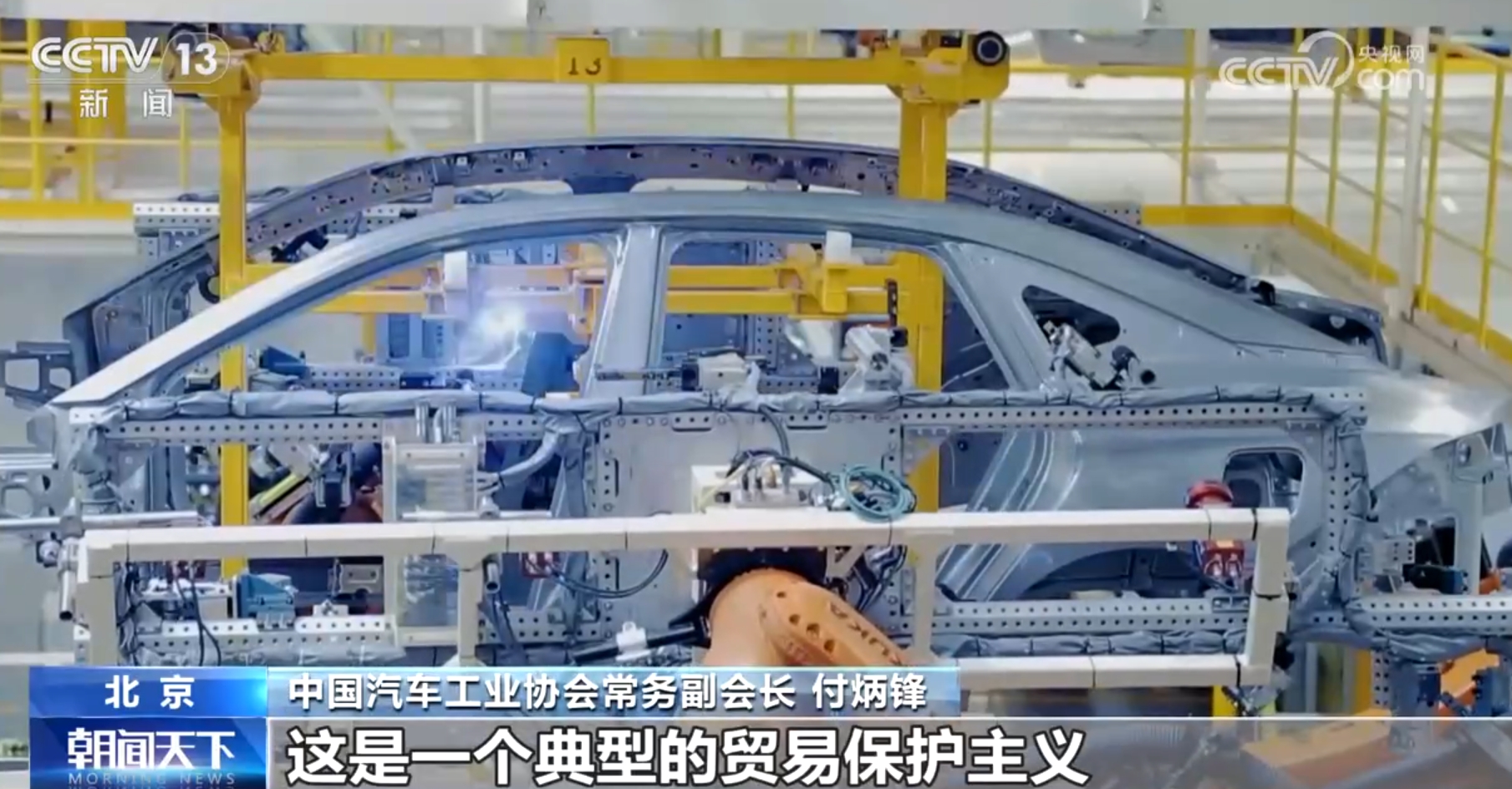A lesson from the past is still in sight, and no matter how high tariffs are, they can’t protect the American auto industry!
CCTV News:On May 14th, the US released the results of the four-year review of China’s imposition of tariff 301, and announced that on the basis of the original tariff 301 on China, it would further increase the tariffs on electric vehicles, lithium batteries, photovoltaic cells, key minerals, semiconductors, steel and aluminum, port cranes, personal protective equipment and other products imported from China.
Ministry of Commerce: Resolutely oppose solemn representations
In this regard, the Ministry of Commerce of China stated that China resolutely opposes and makes solemn representations. Due to domestic political considerations, the US side abused the 301 tariff review procedure to further increase the 301 tariff imposed on some Chinese products, which violated President Biden’s promise of "not seeking to suppress and curb China’s development" and "not seeking to decouple and break the chain with China", and was also inconsistent with the spirit of consensus reached by the two heads of state, which would seriously affect the atmosphere of bilateral cooperation.
The United States should immediately correct its wrong practices and cancel the tariff measures imposed on China. China will take resolute measures to defend its own rights and interests.
China Automobile Association: Responding to US Tariff on Electric Vehicles in China
On May 14th, China Foreign Ministry Spokesperson Wang Wenbin held a regular press conference. Wang Wenbin said that China has always opposed the unilateral imposition of tariffs in violation of WTO rules and will take all necessary measures to safeguard its legitimate rights and interests. The head of China Automobile Industry Association told the general station reporter that this move by the US side is a typical trade protectionism.
Fu Bingfeng, executive vice president of China Association of Automobile Manufacturers, said: "The United States imposes tariffs on new energy vehicles and electric vehicles in China, which is a typical trade protectionism. Trade protectionism can only hurt industries and enterprises, which is very unfavorable to the healthy development of the global automobile industry and the transformation to electrification. "

Experts pointed out that the automobile industry is a fully globalized industry, which has brought great driving force to the economic, technological and market development of various countries in the past 100 years. Trade protectionism should never be the theme of the new energy automobile industry, and it needs a global vision and an open mind to promote its healthy development.

Fu Bingfeng said: "We should respond with a positive attitude, instead of unilaterally saying that the United States will impose tariffs to isolate the automobile industry, which is originally a global development. The additional tariffs can only harm the enterprises of both sides and consumers of both sides, casting a shadow over the momentum of benign development. "
Many overseas people advocate free trade.
Not only the Chinese side responded, but also many overseas people generally expressed their voice for free trade in the automobile industry.
Carlos Tavares, CEO of Maserati’s parent company, Stalentis Group, said that he did not ask for any form of protection, nor did he think that increasing tariffs could protect his company. "Global trade is a way of fair competition, and we also believe that the current division of the world is a bad thing. We support global trade liberalization. "

In addition, a number of established multinational auto companies also said in an interview with the general station reporter that the auto industry should have a fair and free trade environment.
Kang Linsong, Chairman and CEO of Mercedes-Benz Automobile Group, said: "Free trade is important. We advocate letting the market develop freely, maintaining free and open trade and maintaining a level playing field. "

Audi ag CEO Obermu said: "We support fair and free global trade. I don’t think protectionism is the right solution. We should create a level playing field for all participants in the market. "

Many overseas people in the automobile industry also said that the US side abused the 301 tariff review procedure for domestic political reasons, politicizing and instrumentalizing economic and trade issues, which was a typical political manipulation.
No matter how high the tariff is, it can’t protect the American auto industry.
Can high tariffs and trade barriers really protect the American auto industry? Looking at it from another angle, the American steel industry is a lesson from the past. As early as 2017, the United States implemented "double opposition" to stainless steel products in China. At that time, China’s steel exports to the United States were insignificant. The crux of the American steel industry was not the so-called "unfair competition" or the lack of adequate protection, but its monopoly position for many years and its failure to rely on technological progress to improve production efficiency. What the American steel industry really needs is to promote reform through opening up, while trade protection will only enhance enterprise inertia. Sure enough, at the end of last year, the American Steel Company, a giant enterprise that once provided steel for the Empire State Building in New York, agreed to accept the acquisition by Japanese companies. Now, does protectionism protect the American steel industry or turn it into a political bubble? Experts pointed out that today’s steel industry in the United States may be the tomorrow of the American auto industry.